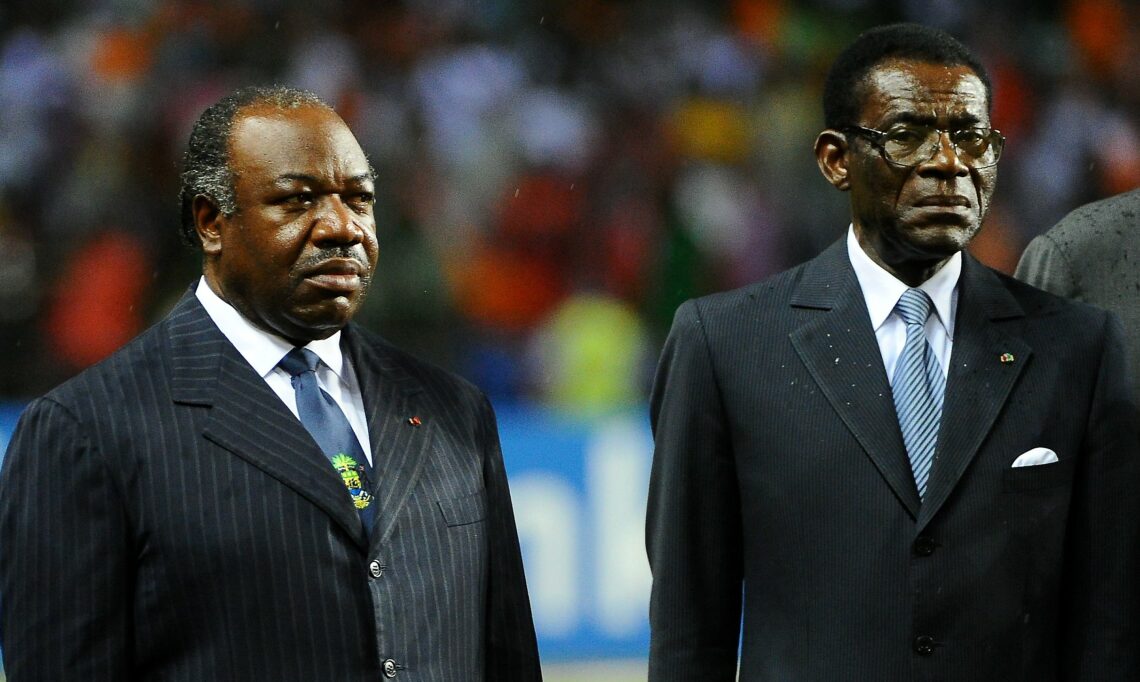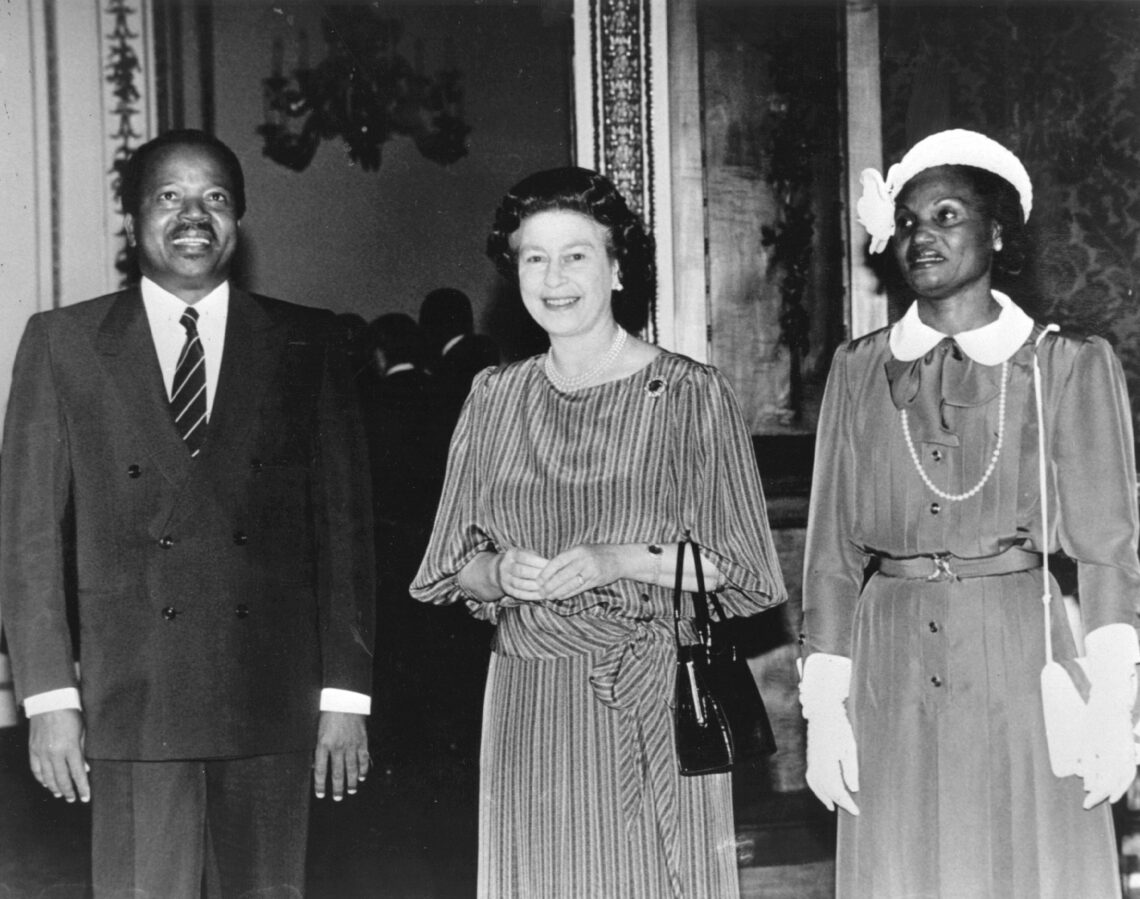Africa’s presidents for life
Presidents staying in power indefinitely is threatening the development of Africa’s democracy. In 2020, several West African heads of states overstayed their constitutional time in office, leading to widespread anger. Protests and ethnic tensions could continue to flare up.

In a nutshell
- Several African heads of state are clinging to power
- They stay in office by tampering with constitutions
- Unrest and chaotic leadership transitions could result
In Africa, leaders clinging to power beyond the term limits remains a major impediment to the development of democracy. In 2020, the issue came under the spotlight, as several West African heads of state have now overstayed their time in office despite rising popular unrest.
Critical juncture
Africa is home to most of the world’s authoritarian or semi-authoritarian regimes. The two longest-serving presidents, Paul Biya of Cameroon and Teodoro Obiang Nguema Mbasogo of Equatorial Guinea, have been in power since 1982 and 1979, respectively.
While West Africa has been praised for its democratic progress, “third-termism” returned as a crucial problem in 2020. In Togo, Faure Gnassingbe, in power since 2005, was reelected for a fourth term in March. The Guinean president, 82-year-old Alpha Conde, was reelected for a third term in October. The opposition alleged large-scale fraud, challenged the results in the Constitutional Court and took to the streets. Political violence and ethnic tensions escalated throughout the electoral campaign and after the results were announced.
Power competition has been shifting from the domain of force to the constitutional and electoral arenas.
In November, Ivory Coast’s Constitutional Council declared 78-year-old Alassane Ouattara had won the presidential elections with 94 percent of the vote. After announcing he would not seek a third term, he changed his mind when his handpicked successor suddenly died in July. In October, ahead of the elections, around 20,000 people rallied in a stadium in Abidjan to protest his intention to run again. Voter turnout was estimated at 54 percent, but the opposition boycotted the polls. Mr. Ouattara first came to power in 2010, in a disputed election that culminated in an armed conflict between his forces and the allies of former President Laurent Gbagbo. Former prime minister and exiled rebel leader Guillaume Soro, who was sentenced in absentia to 20 years’ imprisonment for corruption charges, has called on the opposition and the army to rise up against Mr. Ouattara. Thousands have fled the country amid increasing violence and ethnic clashes.
In the Republic of the Congo, President Denis Sassou Nguesso, who has been in power since 1997, will run again in the 2021 presidential elections.
Facts & figures
Republic of the Congo
Not to be confused with the much larger Democratic Republic of the Congo to its east, the Republic of the Congo has a population of 5 million inhabitants and is sometimes known as Congo-Brazzaville, after its capital. A former French colony, the country gained independence in 1960. Its current president, Denis Sassou Nguesso, has ruled for 35 of the past 40 years.
Constitutional engineering
What the current leaders of Chad, Gabon, Guinea, Ivory Coast and Congo all have in common is that they resorted to constitutional engineering to legitimize remaining in power. They have either passed amendments that reset the term-limit clock, removed age limits or reinterpreted the constitution in novel (and controversial) ways.
Over recent decades, power competition in Africa has been gradually shifting from the domain of force (civil wars or coups) to the constitutional and electoral arenas. Although in most countries the playing field remains skewed in favor of incumbents, these changes provide new opportunities for opposition parties.

Long-standing authoritarian leaders in Africa are also struggling to contain the effects of economic mismanagement. Illiberal regimes are not necessarily doomed to economic failure. They may even capitalize on lower levels of private or popular pressures, which allow them to mitigate the short- and medium-term costs of structural reforms and economic adjustments. There are some examples of strong African leaders who achieved growth, poverty reduction and relatively successful reforms, in countries like Rwanda and Ivory Coast.
However, in the majority of systems where civil and political liberties are limited, patrimonialism, corruption and overall inefficiency are hampering development. As incumbents struggle to remain in power indefinitely, they tend to focus on short-term goals and privilege policies that favor certain segments of the population (usually the military and political elite) to the detriment of national well-being and economic growth. Oil and mineral-dependent economies like Equatorial Guinea, Gabon, Congo or Guinea are particularly vulnerable to this type of political dynamic.
As the factors legitimizing the incumbents’ rule erode, the costs of repression will rise.
Most of the countries under authoritarian regimes in Africa are poor. In Guinea, 55 percent of the population lived below the poverty line in 2019; in Congo, the figure is estimated at 47 percent. In Gabon, where term limits have been removed and President Ali Bongo Ondimba succeeded his father in 2009, one in three citizens lives below the poverty line. In Equatorial Guinea, where President Obiang was reelected for a fifth term in 2016, oil accounts for 90 percent of export earnings. Despite having one of Africa’s highest gross domestic products per capita, its education and health indicators are among the worst on the continent.
Scenarios
Several African presidents are trying to stay in power indefinitely. How will these regimes come to an end? What alternatives will emerge and what does this mean for the development of African democracy?
In some cases, such as Zimbabwe and Angola, the end of personalized leadership only confirms the decisive role of dominant parties. Despite Angolan President Joao Lourenco’s reformist drive, popular unrest is growing. In Zimbabwe, where the military remains the kingmaker, the end of former President Robert Mugabe’s rule brought no substantial changes. The country remains stuck in a vicious cycle of poverty, economic crisis and political repression. In Sudan, where former President Omar al-Bashir was overthrown by protests, there are reasons to be cautiously optimistic. The success of a stable political transition, however, depends on an extremely fragile coalition between the military and pro-democratic movements.
In the case of West Africa, where authoritarian leaders face critical junctures, three scenarios must be considered.
Slow transition
The first and most likely scenario is protracted transitions. Some leaders were recently reelected in contested elections and others are likely to go down the same path soon. Popular mobilization is expected to increase, driven by political claims and material deprivation – and accelerated by social media. As the factors legitimizing the incumbents’ rule erode, the costs of repression will rise. However, the political opposition remains fragile, protest movements lack breadth and consistency, and regional and international actors are unlikely to intervene. Leadership change and the development of African democracy will probably go slowly.
Wave of protests
A second, less likely scenario, is a domino effect wherein popular protests – possibly supported by the military – could unleash political change, inspiring opposition movements throughout the region. This would be particularly challenging for the Economic Community of West African States. The organization, which emphasizes its commitment to democratic norms and its “zero tolerance” for irregular power grabs, would be called to mediate such processes.
This would be particularly delicate, given that some leaders clinging to power are themselves part of the regional body. Furthermore, amid widespread poverty and ethnic tensions, these shifts could result in an escalation of violence, and even civil war.
Business as usual
Under this scenario, long-term African leaders would stay in power, containing protests and eschewing political reforms. This would further erode the likeliness of peaceful leadership changes in the future.







